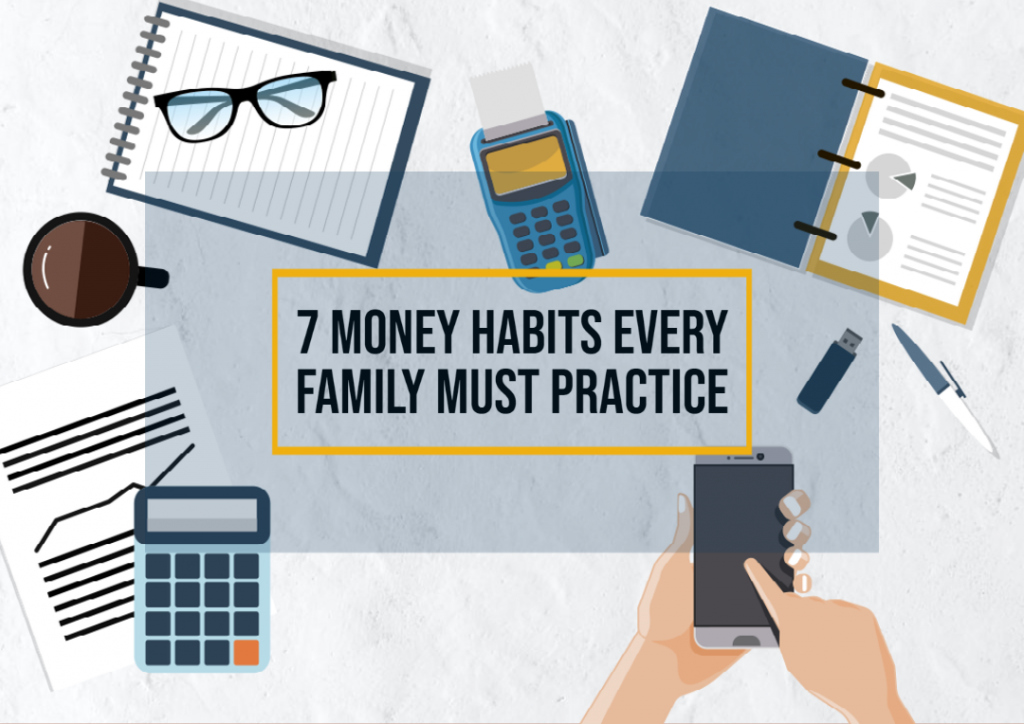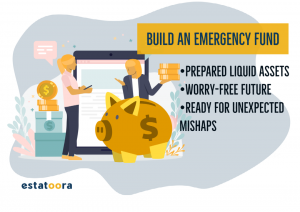
Content Guide
Seven Money Habits That Every Family Should Practice Content Guide
Introduction
Saving money is difficult, especially when you have a lot of responsibilities.
However, that doesn’t mean it’s impossible.
In fact, saving money is usually only a matter of doing a number of small things that make a difference when taken together.
Indeed, you don’t have to act big or do something drastic to find your savings account growing. All you have to do is make a change here and there and you’ll start to notice a difference almost immediately.
Is this easy to do? Not necessarily, but if you do these things long enough, it will become second nature and you won’t even notice you’re doing it after a while.
Why Saving Money Is Important
Saving money is crucial for all families to survive, especially with the cost of living being so high in many areas of the country.
The most effective saving money tips are not that difficult to execute. It may sometimes mean changing your lifestyle, acquiring a habit, or giving up some things that you’re used to having.
Nevertheless, it is all worth it in the end when you see the money in the bank grow. Once you see it growing, you’ll be motivated to continue with these tips so your finances will improve even more.
Shopping at discount stores, buying a smaller home, limiting how often you eat out, and not insisting on buying brand-name items are some of the things that you can do to save more money.
This article lets you learn some of the most effective money habits that you need to practice as soon as you can.
1. Build an Emergency Fund

An emergency fund is not just saving money for the sake of saving, or saving for a particular goal such as a trip to the Bahamas.
An emergency fund is equal to a minimum of three months’ worth of living expenses and is there for you to live on should you have an emergency and you can’t work for a while.
Ideally, you should save six months’ worth of expenses at a minimum, but even three months’ worth will help.
The main purpose of an emergency fund is to have enough money to live on while you’re out of work or otherwise unable to do what you normally do.
To do this, take a look at your living expenses, including house note, groceries, clothing, kids’ expenses, etc., and save a little each month until you have an amount saved up that will work for you. You should also try to keep this money in a separate account so that you’re not tempted to spend it on frivolous things.
2. Keep yourself insured
 Some people insist that they cannot afford insurance, but the truth is that you simply cannot afford not to have it.
Some people insist that they cannot afford insurance, but the truth is that you simply cannot afford not to have it.
This includes life insurance and car insurance, at the very least.
If you get into an accident, it can cost you a lot of money, especially if it isn’t your fault. And you don’t have to purchase the most expensive policies just to get one that is sufficient.
Things such as raising your deductible, combining your car insurance with other types of insurance, and comparing agencies to get the best price all work together to make sure that you get a premium price you can live with.
With life insurance, follow the same rules. At one time, it was thought that people needed a policy that totaled five times their annual salary but that is not what most agents recommend nowadays.
You can take care of your family without breaking the bank and a good agent will help you get started.
3. Research Quality Alternatives
 One of the best ways to save money is to research some of the items that you use regularly to see if you can come up with less-expensive items that still offer the quality that you’re used to and deserve. How should you do this?
One of the best ways to save money is to research some of the items that you use regularly to see if you can come up with less-expensive items that still offer the quality that you’re used to and deserve. How should you do this?
For starters, if you feel like you’re spending too much money on something — for instance, your car — you can research some cheaper items that are still nice enough so you won’t feel as though you’re missing out on something.
Cars, appliances, and even clothes can be purchased in discount places yet still be nice enough to accommodate you.
Naturally, this usually starts before you make a major purchase but even if you’re tired of paying your expensive car note every month, you can start immediately looking for an alternative.
For nearly any item in your home, you can likely shop around for a cheaper yet still very nice item.
4. Treat the Whole Family Once in a While
 Naturally, it is very easy to start to feel deprived when you’re living on a strict budget, which means that it is important to treat the family every now and then to something special.
Naturally, it is very easy to start to feel deprived when you’re living on a strict budget, which means that it is important to treat the family every now and then to something special.
After all, no one can stay inside, never go anywhere, and never splurge twelve months a year. It wreaks havoc on your emotional health; therefore, you need an outlet once in a while.
For this reason, the entire family should do something special once a month or so. Go out to eat, go to a movie, anything that makes you feel “normal” and as though you’re not missing out on anything.
It doesn’t even have to be something expensive but if you don’t do this once in a while, you’ll start to feel trapped and your psyche is bound to take a beating.
For your psychological health and your outlook on life, make sure that the family does something “frivolous” at least once a month.
5. Avoid Impulse Buying
 Okay, this is a tough one.
Okay, this is a tough one.
Impulse buying is a habit that too many of us have made a regular part of our lives.
The truth is that it is super easy to think that spending a little money here and a little money there doesn’t make a difference, but it does!
In fact, the money that you spend on impulse buying adds up quickly and can waste a lot of money every month — several hundred dollars or more — and that’s money you could apply to other things that count. And we’re not talking about buying a pack of gum at the grocery store check-out counter; it’s much more than that.
Buying anything that you don’t need and hadn’t budgeted for, from clothes to wallets, CDs, or yoga mats, is an impulse buy and this is something that should be avoided.
6. Live Below Your Means
 Living just a tad below your means can make a big difference in the amount of money that you save every month.
Living just a tad below your means can make a big difference in the amount of money that you save every month.
You don’t have to live as if you’re poor but don’t live as if you’re rich either.
Figure out what you’d be bringing home if you made $10,000 less than you do now and budget according to that amount. You can save money how you wish to do it, of course, but if you pretend as though you don’t make quite as much money as you do now, you’ll quickly learn to live below your means and be able to save money along the way.
7. Prioritize Health and Wellness
 This may sound like an odd one but if you exercise, eat right, and cut out tobacco and excess alcohol, you’ll stay healthier year after year. This can affect your finances even if you have a good health insurance policy.
This may sound like an odd one but if you exercise, eat right, and cut out tobacco and excess alcohol, you’ll stay healthier year after year. This can affect your finances even if you have a good health insurance policy.
After all, co-pays and deductibles can add up quickly and taking good care of yourself is a much better alternative, and a much cheaper one in the end.
What’s Next
Enjoying small luxuries won’t hurt. Make sure that in order to save money, you’re not depriving yourself of being happy and comfortable.
Take that flight, treat your kids, checkout that cart, and make new experiences once in a while.
As long as you keep in mind all of the points above, you are sure to have a relaxed and enjoyable journey to a good spending lifestyle.




